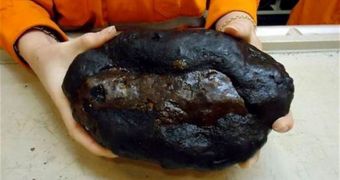This past Tuesday, specialists working with the Japan Agency for Marine-Earth Science and Technology and the Geology Service of Brazil announced that they might have discovered a long-lost continent.
This continent, now referred to as the Brazilian Atlantis, allegedly sunk into the Atlantic Ocean quite a long time ago.
More precisely, it is being said that it fell off the map about 100 million years ago, when Africa and South America drifted apart, causing the Atlantic Ocean to rise.
These claims are based on data collected while analyzing several rocks discovered just off the coast of Rio, Brazil.
“South America and Africa used to be a huge, unified continent. The area in question may have been left in water as the continent was separated in line with the movements of plates,” Professor Shinichi Kawakami stated.
The rocks were found while specialists were dredging the seabed close to a seismic mountainous ridge known as the Rio Grande Elevation.
The rocks were discovered at a depth of over 8,000 feet (roughly 2.43 kilometers).
Both the geologists and the scientists who have thus far had the chance to take a very close look at these rocks maintain that they might have been part and parcel of this hidden continent at some point in the past.
Huffington Post says that the rocks found by these researchers are made of granite.
Since granite is typically only found on land, the people who found them concluded that the rocks most likely came from a continent that could once be found in these regions.
Presently, the researchers are busy conducting several other tests and investigations meant to confirm their hypothesis.
“This could be Brazil’s Atlantis. We are almost certain, but we need to strengthen this hypothesis,” geologist Roberto Ventura Santos told the press.
“We will have final recognition this year when we conduct drilling in the area to retrieve more samples of these rocks,” he further argued.

 14 DAY TRIAL //
14 DAY TRIAL //